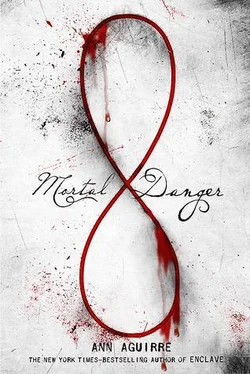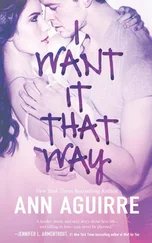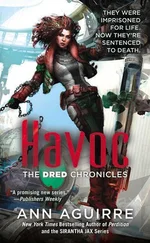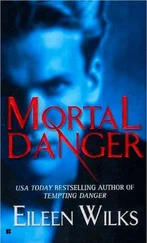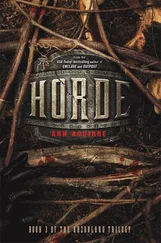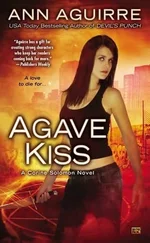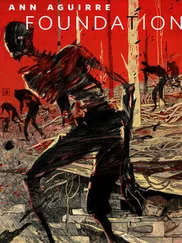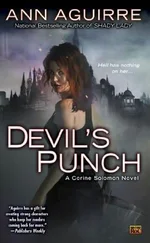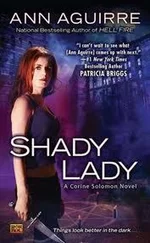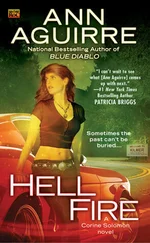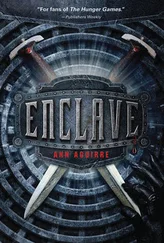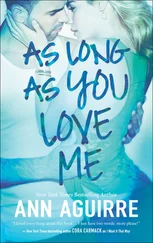“Why did you?”
“Wedderburn called me here,” he said simply.
I tried to imagine getting my diploma and then learning the deal I’d made was now worthless, and that the bright future they’d hinted at was no longer viable, therefore I could expect to spend the next sixty years in servitude. It was like being a spy, only without the satisfaction of knowing you were risking your life for the greater good. This was blind obedience with no hope of escape or understanding.
“How was that?” I asked.
“By that point, I didn’t care. My senior year when Tanya died, I went numb. And I stayed that way until the first time I saw you.”
I ducked my head. “If you say stuff like that, I will shatter into a million pieces and you’ll have to sweep me up.”
He sank down on the bed beside me, but I was conscious of my dad in the other bedroom. If he came in, I didn’t want him to think … anything. So I stood up.
“Living room?”
“That’s fine. I can put on a DVD.”
“Do you have Casablanca ? That way, if I cry, I can blame the movie.”
“Not a problem.”
We settled in to watch and partway through, my dad joined us. I could tell he had been weeping, too, but nobody acknowledged it.
The weekend went slowly. I missed some school days for my mom’s funeral. The whole university showed up, which was nice for my dad, less so for me because of all the hugs I got from strangers. My eyes were dry that day; I had wept myself out at Kian’s place. I bought a new black dress and I hated it, but I wore it with black tights because everything was black. Except the sun. It had the nerve to shine, after days of rain, and I hated it, too.
Davina and her mother came to the service; I was grateful, but it also reminded me that she still had a mom. The knife dug in and twisted, around and around, until it was an effort to hold my smile in place. I imagined it had been carved into my face, blood trickling from my mouth, and my cheeks ached. I hugged another stranger.
Kian held my hand through the prayers, songs, and speeches. I clenched hard when the minister started talking about the afterlife. We had never been a religious family, and my mom would laugh over his talk of being called home. I tuned everything out, until Kian tugged on my arm, telling me it was time to stand up and say good-bye. For obvious reasons, it was closed casket, pictures arrayed on top.
Like Brittany.
My dad grabbed my other hand, and they flanked me as we approached the coffin. It was high quality; my dad picked it out. I flattened my hand on top of the box that held what was left of my mother. Beside me, my dad did the same and Kian stepped back, letting us grieve. Then we took our places by the door, so the pallbearers could do their work.
Kian drove us to the cemetery. God knows what my dad and I would’ve done without him. Taking a taxi seemed disrespectful; so did public transportation. An hour later, there were more words, more prayers, and a handful of dirt raining down. She’s really gone. Someone put a flower in my hand and I pitched it into the grave. I stumbled on the green carpet, meant to look like grass so the gaping hole didn’t hit so hard.
People said, “It was a lovely service,” as they filed past.
I nodded but I didn’t see them. They all wore the bag man’s face. Dad and I stayed until everyone had gone. Mom’s headstone was in place, but nothing was carved on it. That seemed so very wrong.
“We should go,” Dad said finally. “We can come back after the engraving’s done. Leave some flowers for her.”
“She hated cut flowers,” I muttered.
It was true. I remembered her saying it was cruel to snip and put them in vases, laying waste to their beauty. Better to let them bloom and die, as they’re supposed to. Did that mean my mom believed in fate? I wished I had told her about the bargain, about my place in the timeline, but I had been ashamed of my weakness, boiling with guilt. Now it was too late. Repeatedly, I reminded myself that she was a scientist, and if I’d spilled everything, she wouldn’t have been on guard; she would’ve put me in a mental ward, so I’d be locked up and she’d still be gone.
“What verse did you choose?” Kian asked.
My dad turned to him, probably grateful for the distraction, as we walked toward the car. “‘Our death is not an end if we can live on in our children.’”
My throat closed. I recognized the quote at once; I had been reading about Einstein obsessively since I was a little girl. The tears spilled over as Kian wrapped an arm around my shoulders. I squeezed my eyes shut until the urge to sob passed.
“That’s perfect,” I whispered. “She would l-love that.”
Dad couldn’t smile. He tried. The glint of his own tears shone through the lenses of his glasses. He took them off, polished them on the sleeve of his coat. “I don’t know what we’ll do without her. Everything … will break down.”
“Then we’ll fix it. I’ll learn.”
But she won’t teach me. All the moments we might’ve had together, they’re gone now.
“There’s a cleaning crew coming to … sort things out.” To scrub up her blood. Dad went on, “The police have released the apartment, but we can’t live there. I asked around, and we— I —have a colleague at the university who knows someone willing to sublet to us, half a mile from the old place. I know it’s not ideal, but—”
“No, that’s fine. Do we need to pack?”
“Mr. Lewis volunteered to help us. If Kian doesn’t mind, we can swing by for the boxes and…” Trailing off, it was clear he had no idea what to call the move. It wasn’t something either of us wanted.
“Get settled?” Kian offered.
I could’ve kissed him. “Do you mind?”
“Of course not. And I can get takeout if you’re hungry.”
Dad shook his head, but even though I didn’t want to eat, we both needed to. So I said, “That would be good.”
Nothing is. The sun shone on until sunset, swirls of purple on the skyline dotted with city lights. As I climbed out of the backseat in front of the brownstone, the wind whispered, I’m so sorry. Cameron’s voice, at my shoulder, made me whirl around, but I didn’t see him. There was only Mr. Lewis waiting on the stoop. My dad took Kian while I opened the trunk. We packed it with our clothes but not Mom’s, my dad’s research and various books that Mr. Lewis thought I might want. The rest would keep.
“What’s the address?” Kian asked.
In a husky voice, Dad told him and we pulled away from the curb, leaving my old life behind. The new building was red brick, sharp and featureless, with uniform lines and no window boxes full of autumn flowers. Though I wasn’t sure, I thought it might be December now. During the days prior to my mom’s funeral, I lost track of how often I ate and slept, though mostly the latter.
This unit was on the first floor toward the back. We had a nice fenced patio and two bedrooms, decorated in classic rental unit. So much beige and brown. The pictures on the wall looked like abstract poop. Kian helped us unload the car, then he dodged out to grab some food and brought back stir-fry noodles. Like the other two, I ate in silence. There were no words for any of this.
“I have some work to do,” my dad said eventually. “Feel free to stay as long as you like.” The last, to Kian.
I guessed he trusted him now. So did I. At any point, he could’ve bailed on us, left me to deal with the fallout on my own. Coping would’ve been much harder without him to smooth the rough spots, do what I couldn’t. If not for him, my dad might’ve starved.
Читать дальше
